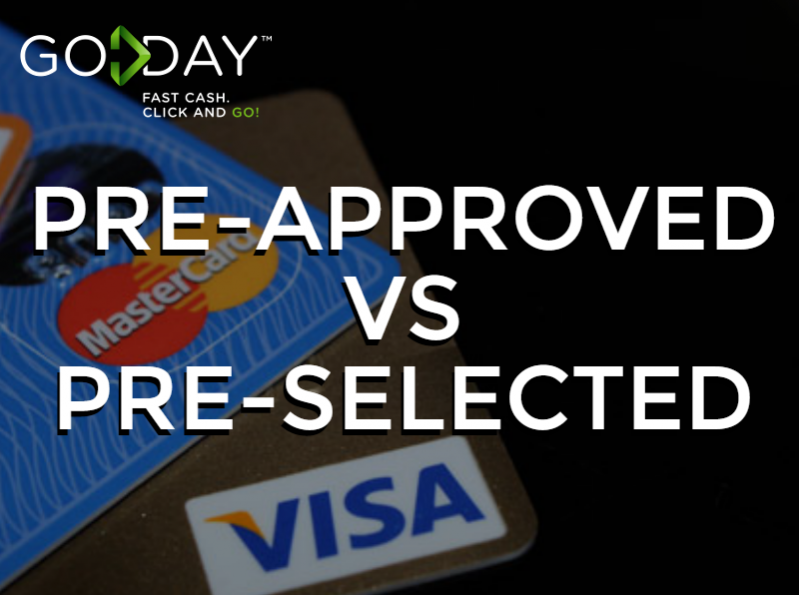One of our staff was recently discussing an offer they received from a company that also offers a major credit card. Since they’re signed up with the company to receive points every time they do a certain activity or buy certain things, the marketing side of the company has enough information to pitch a new card to certain members. Our team member said they were “pre-approved” for a large limit a credit card and wanted to know if it was legitimate and if they did a “soft check” on her credit before offering it. It indeed was legitimate, but we found that no checks were done. Based on that info, our staff member went off to make the decision whether or not to increase their credit utilization ratio.
There is quite the difference between being pre-approved for a line of credit and being pre-selected, whether it’s by your bank or by a company such as the one that was marketing to our colleague. Generally, one guarantees credit to you often without a ding on your rating, and the other does not.
Special Note: These terms mean something a bit different when it comes to mortgages, which is not what we’ll be covering here.
Being Pre-Approved
There is a lot of back-and-forth on whether or not a bank or credit card company does a soft (or hard) inquiry on your credit score before offering you a shiny new card. The answer is that it really depends on where it’s coming from. In Canada, the two terms are not synonymous to each other as they are in the U.S.
Some banks don’t do any checks at all, and work solely off of your name, address and income information. It’s a total shot-in-the-dark for them, but they hope that you’ll spend lots.
The law requires them to ask pre-screening questions, however (generally something to do with whether or not you’ve declared bankruptcy, if you’re a Canadian citizen, etc etc).
If the lender does do a check, at worst it will be a soft inquiry. These do not hurt your rating nearly as much as people think.
Being pre-approved generally means you are confirmed to receive the amount being offered to you without further checks. If you want more than what they’re offering you, however, then that is when an actual check is likely to be done.
The golden rule here? If you’re unsure – ask!
Being Pre-Selected
Being pre-selected generally means that the company giving you the offer has enough information on you to invite you to apply, but no specific dollar amount for an offer has been made. In this case, a credit check would be done and you’d fill out all of the information one would expect to fill out when applying for any kind of credit. This is not the offer our colleague received, for example. They received a solid dollar value in the offer and did not have to give specific income information, social insurance number, or any of it because they were pre-approved. Being pre-selected requires you to jump through the hoops and then possibly get denied.
To Go Ahead With An Offer Or Not
This is the hardest thing to answer, and the truth is it depends on your current financial health and your ability to use the card responsibly. A new card might be really tempting and give you more buying power, but if you’re really spread out and are struggling to make minimum payments, it might not be the best idea. It might get you further into debt.
However, even if you are “maxed out” on your other card (or cards), but know a new one won’t tempt you, it might be worth taking because it will increase your credit utilization ratio, which is a very large factor in determining your score.
While opening a new line of credit can lower your score temporarily, it is also a very small percentage. Remember, only 10% of what determines your credit score is new accounts. Making payments on time and having a good credit utilization ratio matters far more, making up 35% and 30% of your score.
Additionally, if the card being offered to you includes perks (like cash back, discounts at your favourite retailers, etc.) then seriously consider whether or not they will be of use to you. Cash back cards are a great way of getting a little bit ahead if you’re able to responsibly manage your credit!
If you’re still not sure whether to go ahead or not, talk to a financial advisor whom you trust.



